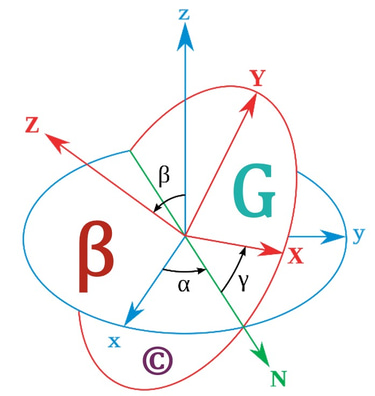The Role of Data Centers in Enabling Smart Cities
The concept of smart cities is no longer a distant dream—it’s becoming a reality. From intelligent traffic systems and energy-efficient buildings to connected public services and environmental monitoring, smart cities are leveraging technology to improve the quality of life for their residents. At the heart of this transformation are data centers, which provide the infrastructure needed to collect, process, and analyze the vast amounts of data generated by smart city applications. In this blog, we’ll explore how data centers are enabling smart cities, the challenges they face, and the innovations driving this urban revolution.
ELECTRICAL ENGINEERINGSUSTAINABILITYENERGY
Engr. Benjamin V. Gonzales Jr.
4/3/20253 min read
What Are Smart Cities?
Smart cities use technology and data to enhance urban living. They integrate Internet of Things (IoT) devices, sensors, and data analytics to optimize infrastructure, reduce resource consumption, and improve public services. Key applications of smart cities include:
Smart Transportation: Real-time traffic management, autonomous vehicles, and intelligent public transit systems.
Energy Efficiency: Smart grids, renewable energy integration, and energy-efficient buildings.
Public Safety: Surveillance systems, emergency response optimization, and predictive policing.
Environmental Monitoring: Air quality sensors, waste management systems, and water conservation technologies.
Citizen Engagement: Digital platforms for public services, feedback, and community involvement.
How Data Centers Enable Smart Cities
Data Collection and Storage
Smart cities generate massive amounts of data from IoT devices, sensors, and citizen interactions. Data centers provide the storage solutions needed to house this data, ensuring it is accessible for analysis.Real-Time Data Processing
Many smart city applications, such as traffic management and emergency response, require real-time insights. Data centers process this data quickly, enabling timely decision-making and action.AI and Machine Learning
AI and ML are essential for analyzing smart city data and uncovering patterns, trends, and insights. Data centers provide the computational power needed to train and deploy these models.Connectivity and Integration
Smart cities rely on seamless connectivity between devices, systems, and platforms. Data centers support this integration by providing the infrastructure needed to manage and relay data across networks.Scalability
As smart cities grow, so does the volume of data and the complexity of applications. Data centers offer scalable infrastructure that can handle increasing demands without compromising performance.Cybersecurity
Smart cities are vulnerable to cyberattacks, which could disrupt critical services and compromise citizen data. Data centers implement robust security measures to protect against these threats.
Challenges for Data Centers in Supporting Smart Cities
While data centers are critical to smart cities, they face several challenges in meeting their demands:
Data Volume and Velocity
Smart cities generate data at an unprecedented scale and speed. Data centers must invest in high-capacity storage and high-speed networks to handle this influx.Energy Consumption
The computational power required to support smart city applications is energy-intensive. Data centers must adopt energy-efficient technologies and renewable energy sources to reduce their environmental impact.Latency and Edge Computing
Many smart city applications, such as autonomous vehicles and real-time surveillance, require low-latency processing. Data centers must integrate edge computing capabilities to bring processing closer to the source of data generation.Interoperability
Smart cities involve diverse systems and devices, often using different protocols and standards. Data centers must support interoperability to ensure seamless connectivity and data exchange.
Innovations Driving Smart Cities in Data Centers
To address these challenges, data centers are adopting innovative solutions:
Edge Computing
Edge data centers bring processing closer to IoT devices and sensors, reducing latency and enabling real-time insights for applications like traffic management and public safety.AI-Driven Optimization
AI is being used to optimize data center operations, from predicting equipment failures to dynamically allocating resources. This improves efficiency and ensures reliable performance for smart city applications.Hybrid Cloud Architectures
Hybrid cloud solutions combine on-premises, public cloud, and private cloud resources, providing the flexibility and scalability needed to support smart city initiatives.Blockchain for Security
Blockchain technology is being explored as a way to enhance the security and transparency of smart city data. Data centers can host blockchain networks to ensure secure and tamper-proof data exchange.Sustainable Practices
Data centers are adopting renewable energy sources, energy-efficient hardware, and waste heat recycling to reduce their carbon footprint and support smart cities sustainably.
The Future of Smart Cities and Data Centers
As smart cities continue to evolve, their impact on data centers will only grow. Key trends to watch include:
5G Connectivity: The rollout of 5G networks will enable faster and more reliable connectivity for smart city applications, driving demand for data center resources.
AI-Powered Urban Planning: AI will play an increasingly important role in optimizing urban infrastructure, from traffic flow to energy distribution.
Citizen-Centric Services: Smart cities will focus on delivering personalized and accessible services to residents, increasing the demand for data center infrastructure.
Resilience and Sustainability: Smart cities will prioritize resilience and sustainability, requiring data centers to adopt greener practices and support disaster recovery.
Conclusion
Smart cities are transforming urban living, and data centers are the unsung heroes behind this revolution. By providing the storage, processing, and connectivity needed to support smart city applications, data centers are enabling safer, more efficient, and more sustainable cities.
As smart cities continue to grow, data centers must adapt to meet their unique demands. By embracing innovation, sustainability, and security, data centers can ensure that they remain at the forefront of this exciting journey.





